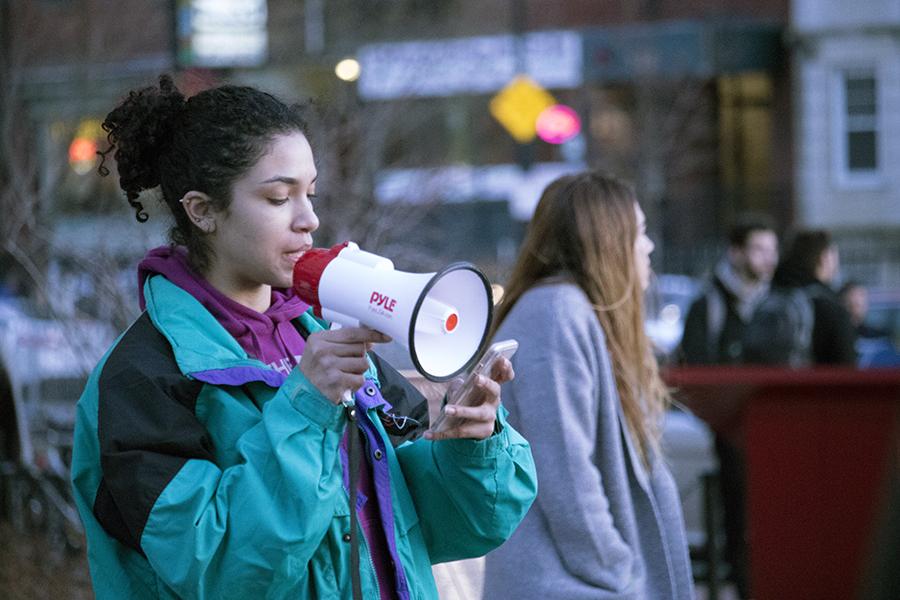College tours and their accompanying brochures hawk authenticity: “Find yourself — right here!” they cry. Now, those same prospective students are faced with a question fundamentally tied to their self-identities and their college applications: to walk out or not to walk out?
Following the shooting in Parkland two weeks ago, a Houston high school said it would suspend protesting students who disrupt the academic day and distract fellow students from their studies. Other high schools across the nation took a similar stance, saying that students were not allowed to join in organized walk-outs during school hours to support gun control laws. But with a nation fed up with the number of mass shootings we see, it’s all the more important that schools give students the space to express their opinions without fear of getting rejected.
Many colleges, including the Massachusetts Institute of Technology and Dartmouth College, have issued statements supporting student protests in response to concerns of how a disciplinary citation on their applications may be reviewed by admissions departments. Boston University joined the ranks in acknowledging the importance of students engaging in these peaceful protests and exercising their constitutional rights to free speech and assembly. In a strong statement released by BU Admissions, the university ensured applicants that it stood in support with their actions.
It is crucial for colleges to assure applicants they won’t be penalized for engaging in a national conversation and to give them the permission to do something that is protected by the Constitution. Students are trying to heal and mourn for their fellow classmates. They are growing increasingly embittered by politicians in Congress who aren’t taking action on gun laws and regulations. Protesting is a way for students to cope with what’s happening to the world around them, and to try to change it for the better. It’s a way for them to try to get some justice for their classmates who were violently shot. Young people everywhere, most prominently high school students, are leading and organizing protests calling for their representatives to enact change.
And it seems like they’re doing much more than politicians in office right now. Many concrete actions we have seen in the last few weeks were inspired by the outrage expressed by students. Dick’s Sporting Goods announced Wednesday it would no longer be selling assault-style rifles in its stores. Countless companies have withdrawn their funding from the National Rifle Association. There are conversations going on right now about increasing the age to 21 for owning a gun.
While it’s understandable that high school administrators are trying to maintain order by stopping students from protesting, at this point in time, it’s unfair to penalize them for practicing their right to free speech. High schools are responsible for the education of its students, and this should include empowering them to act on the issues that matter most to them. They shouldn’t have to wait until college to feel like they are allowed to speak their minds. Even though the age gap between a high school senior and college freshman is insignificant, college still becomes a platform for people to have a voice. The statements issued by colleges are important because they provide students some safety: Their applications will not be negatively impacted if they get suspended for peaceful protest. College admissions departments are treating their applicants as the young adults they are, and rightfully so.
For high-achieving students who may not be fond of disobeying school rules in fear of leaving a blemish on their transcripts, a message like this could encourage them to stand up for their beliefs. At a time when many students are thinking critically about gun control laws — or rather the lack of them — in this nation, there is an overwhelming desire to take a stance. However, these students feel trapped between their opinions and what image they’re trying to project to universities. Now, with colleges saying that protesting will not incur a penalty, students can rest assured that in the long-run, there are institutions that protect them and respect their rights.
Still, high schools should be more respectful to their students and acknowledge that young people’s voices deserve to be heard. It shouldn’t take until students turn the magical age of 18 that their opinions suddenly matter and are given a platform. While high schoolers should own up to their actions and accept the consequences of missing a class period, they certainly shouldn’t be penalized for any more than just that.
This wave of college admissions departments supporting students represents an important shift in attitude toward young people protesting. In years past, universities stood in the way of protests organized by students. But the sentiment expressed by several colleges right now echoes the thoughts felt by the nation. Sometimes, the fate of our country rests in the hands of a small but mighty group of individuals passionate about their cause — and this time, it’s high schoolers.



















































































































